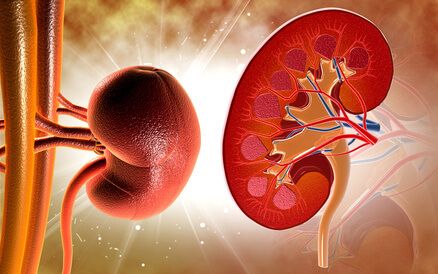Hypertension treatment has evolved considerably over time. However, managing adverse events driven by medication is still challenging, as is low patient adherence, be it because of polimedication or associated costs. Approximately 10% of patients do not reach optimal blood pressure targets, despite adherence optimal medical treatment (OMT); this condition is known as resistant hypertension. Renal…
Renal Denervation is Safe and Reduces Blood Pressure and Medication
We are well aware of the multifactorial nature of hypertension, as well as the fact that it responds well to medication and lifestyle changes. It can be treated with renal denervation (RDN), which has been shown safe and effective in several randomized and non-randomized studies. However, the group of patients that will benefit most from…
Simplified Rapid Intravenous Hydration for the Prevention of Contrast-Induced Nephropathy in Patients with Chronic Kidney Disease
Patients with chronic kidney disease (CKD) undergoing coronary angiography are at increased risk of developing contrast-associated acute kidney injury (CA-AKI), which is associated with increased mortality. According to current guidelines, the standard treatment for preventing CA-AKI in patients with moderate to severe CKD is long-duration peri-procedural intravenous hydration with saline solution. This standard hydration is…
EuroPCR 2023 | New Renal Denervation Devices Show Promising Results
The Netrod System study included 205 patients with uncontrolled essential hypertension while taking two drugs (nifedipine and hydrochlorothiazide), who were randomized 2:1 to denervation or sham control. All subjects had undergone renal angiography before randomization. Renal denervation was done using the Setrod System device. Mean patient age was 50 years old, and 16% of subjects were female.…
EuroPCR 2023 | More Evidence in Favor of Renal Denervation
This study included 219 patients with uncontrolled essential hypertension who had received at least two antihypertensive drugs. All of them underwent a renal angiography and were randomized to the renal denervation group or the control group. Denervation was performed using the SyMapCath I catheter and the SYMPIONEER S1 generator/stimulator. Mean patient age was 45 years old, and…
Is There Any Difference in Clinical Outcomes Between Transient and Persistent Acute Kidney Injury in ACS Patients after Invasive Treatment?
Acute kidney injury (AKI) following acute coronary syndrome (ACS) is associated with prolonged hospital stay and worse prognosis at followup. However, serum creatinine level increase can either be transient or permanent. At present, retrospective studies show transient AKI patients present similar survival rate to patients with no AKI. The prognostic implications of transient and persistent…
TEATE Trial: Urine Alkalinization as a Target to Prevent Contrast-Associated Kidney Injury
Acute kidney injury related to iodinated contrast significantly increases morbidity and mortality after angiography or angioplasty. According to registries, its prevalence can vary from 2% in low-risk population to up to 50% in high-risk subjects. Its risk factors include previous renal failure, diabetes, age, and the amount/type of contrast used. As a preventive measure, international…
SYMPLICITY HTN-3 Trial. Evolution at 3 Years
The SYMPLICITY 3-year outcomes are out. Bear in mind this is the largest study we have had so far. It included 535 patients. 364 received renal denervation (RDN) and 171 went to the control group. At 36-month followup, 101 patients crossed over. The procedure was safe at 36 months, both for patients receiving it at…
TCT 2022 | RADIANCE II Pivotal Trial
Renal denervation has been developed to treat blood hypertension. Even though at present is still not common, with the development of new technology and improved technique, its results are promising. The RADIANCE II Pivotal included 224 patients. 150 received renal denervation with ultrasound (uRDN) and 74 went to the control group. Efficacy primary end point…
Gender Differences and 10-Year Prognosis in STEMI
Coronary artery disease in women usually develops 10 years later than in men, and some evidence suggests women have higher mortality, especially when it comes to ST elevation MI (STEMI). Registries have shown higher mortality both in hospital and at one year follow up. In part, this difference is observed because of the gap in…
RADIANCE-HTN SOLO: Control Durability of BP
In patients with hard-to-control high blood pressure (HBP), both non-pharmacological treatment and lifestyle changes have been useful to improve its control. Renal denevartion (RDN) was assessed as part of this complementary treatment, since some research has shown that this alternative decreases blood pressure (BP) values in different groups treated with either radiofrequency or ultrasound (uRDN).…







